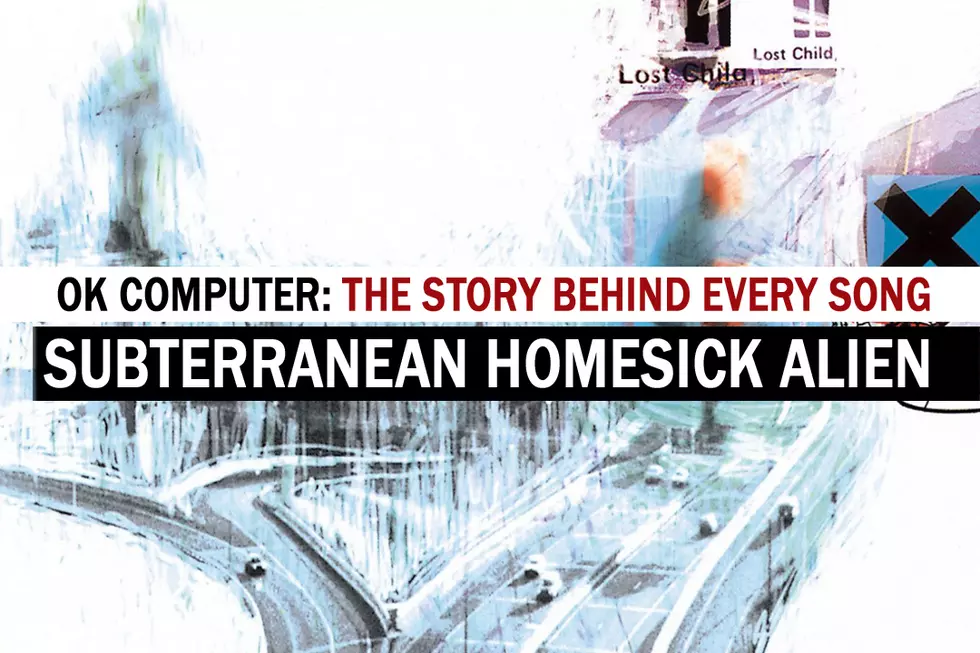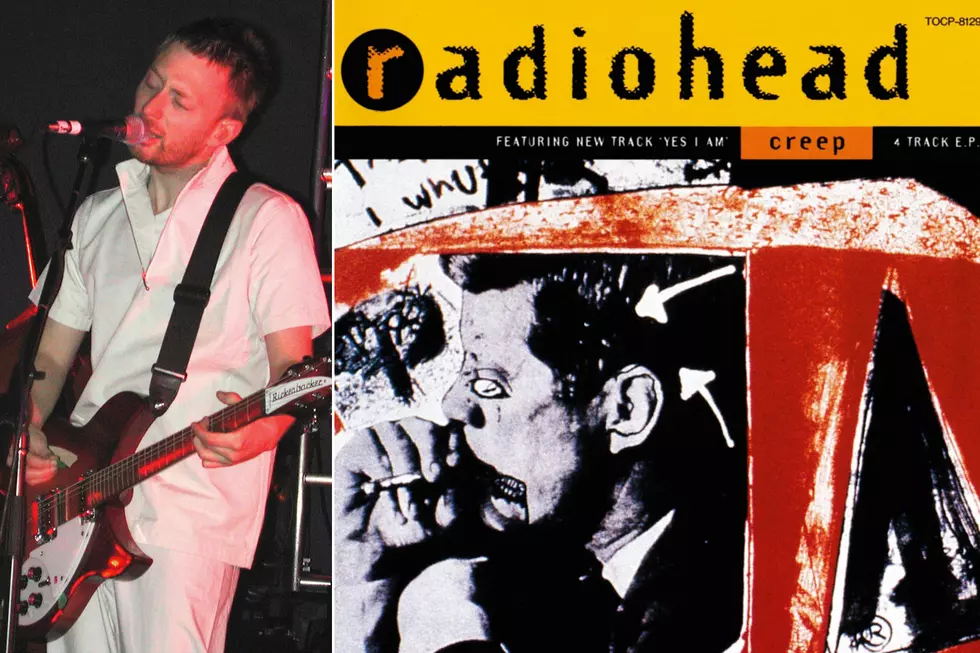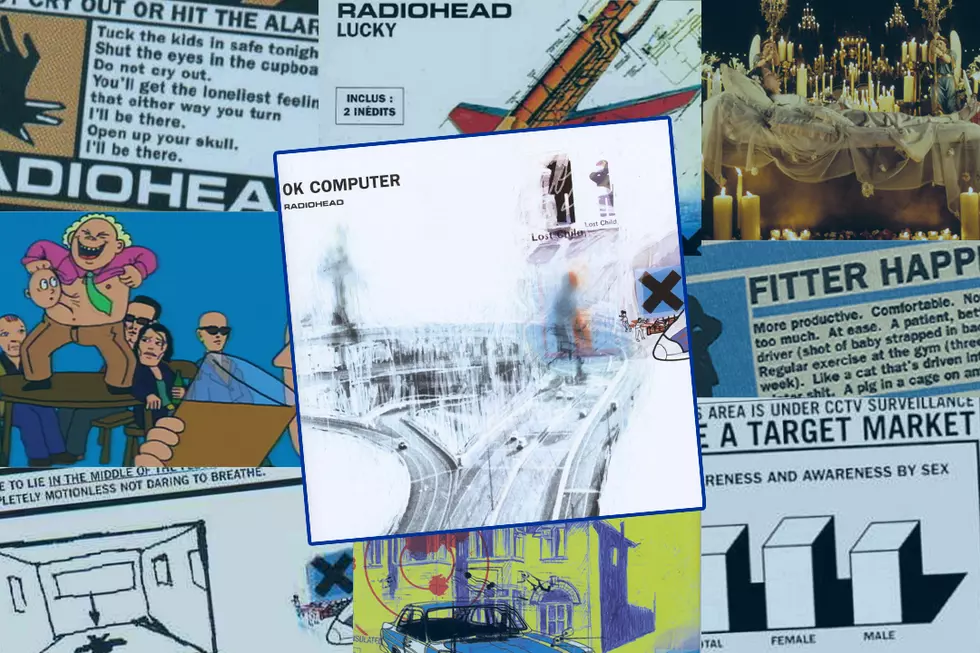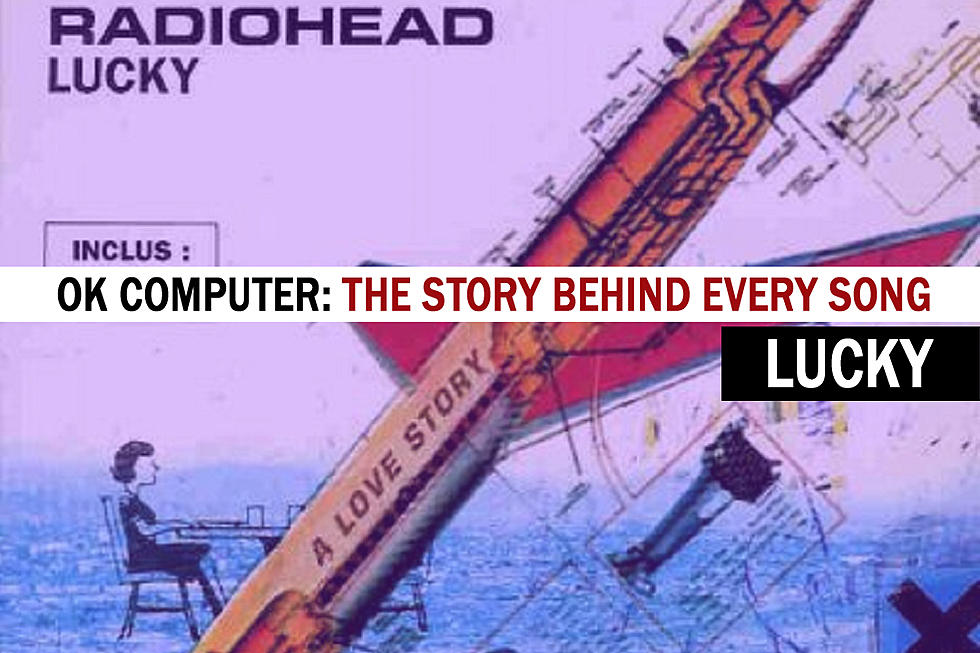
Radiohead Bring Jazz to Mars on ‘Subterranean Homesick Alien’
When Radiohead singer Thom Yorke was enrolled at Abingdon School in Oxfordshire, he was assigned to write a bit of Martian poetry.
In England in the late ’70s and early ’80s, the small literary movement was inspired by Craig Raine’s “A Martian Sends a Postcard Home.” The poem took an outsider’s view of humanity, describing everyday occurrences with surreal befuddlement, and inspired a type of writing that was often comic in its depiction of humdrum life in the British Isles.
Academics latched onto employing this vantage point as an exercise for writing students, like Yorke, to make them flex their creative muscles in new ways. Years later, after hitting a bird with his car on his way home, Yorke began to think about extraterrestrials and was reminded of his school essay. He began writing what would become “Subterranean Homesick Alien” off of 1997's OK Computer.
“A lot of the song stems from the idea of when I was at school, the first essay I wrote was: ‘You are an alien from another planet. You’ve landed and you’re standing in the middle of Oxford. What do you see? If you’re an alien from another planet, how would you see these people?’” Yorke told Launch in 1999. “And that’s a lot of where it came from, from someone who is not involved. Laughing and recording, taking home movies back to their home planet to show to their friends.”
Yet the lyrics aren’t written from the aliens’ perspective, but rather from a human who is depressed with his Earth-bound status. He’s bored with where he lives (“I live in a town where you can't smell a thing / You watch your feet for cracks in the pavement”) and feels he would have more in common with the aliens hovering somewhere in outer space than with his fellow citizens.
Although he wishes the creatures would beam him up and “show me the world as I’d love to see it” (from a distance, that is), he recognizes that no one would believe his story, even if he had proof it happened, and he would remain an outsider. And so, for hoping and wishing, for wanting to believe in aliens, he is the one who feels alienated from society. That sense of estrangement makes “Subterranean Homesick Alien” right at home on OK Computer.
Hear Radiohead's 'Subterranean Homesick Alien'
Musically, it fits, too – progressing from what started as a folksy acoustic duet between Yorke and guitarist Jonny Greenwood (back when it was called “Uptight”) to a glistening slice of space rock. Electric keyboards seem to stretch out, with great hope, towards the stars. The sonic alteration resulted from Radiohead’s self-imposed exposure to Miles Davis’ 1970 jazz-fusion masterpiece Bitches Brew. The band liked both the blend of sounds and the frequent disruptions to the atmosphere of the double LP.
“Sometimes a guitar plugged into an amplifier isn’t enough,” Greenwood said in Mac Randall’s Exit Music: The Radiohead Story. “So you hear sounds in your head or you hear sounds on a record and you say, ‘I want it to sound like this,’ and sometimes it won’t, for whatever the reason. I can’t play the trumpet so it’s not going to sound like Bitches Brew … But at least you can try and emulate the atmosphere. You aim for these things and end up with your own garbled version.”
The “garbled version” got a garbled title, a reference to Bob Dylan’s “Subterranean Homesick Blues,” that seems like a non-sequitur, but might reflect the poetic beginnings of Radiohead’s song, as well as its elements of the surreal. Although the actual aliens in the song are extraterrestrials (quite the opposite of subterranean), the winking title could describe the alienated narrator. He’s so miserable in his human existence, that he might as well be sunk deep in the ground, “homesick” for an imagined community that would accept him.
“I feel the song is more about hope than any other subject,” Greenwood said in 1999. “I’m an enormous cynic. I side with science, I’m afraid… That song is more about how for every generation, it’s a different thing. Before UFOs, it was the Virgin Mary, and before that, it was something else. People flock to the same places with their cameras and hope to see the same things. And it’s just about hope and faith, I think, more than aliens.”
Radiohead Albums Ranked
More From Ultimate Classic Rock










